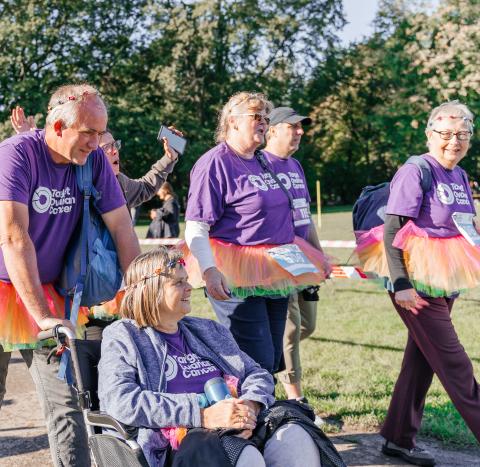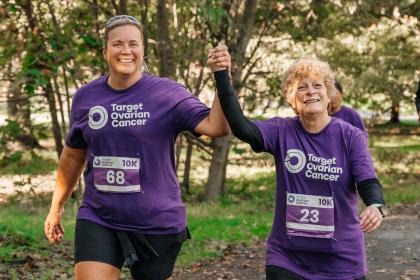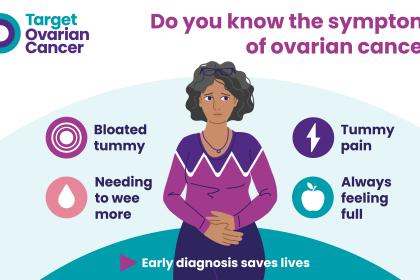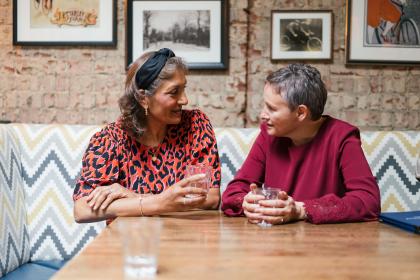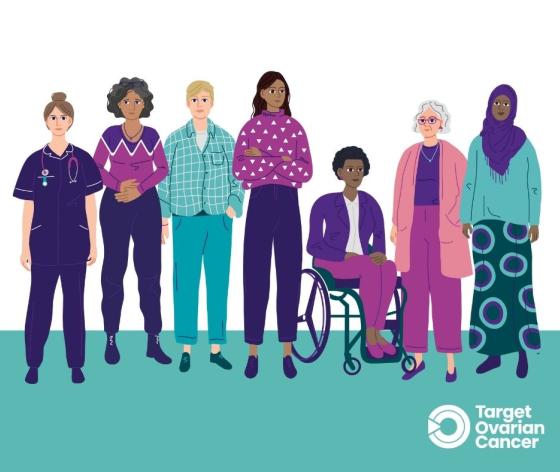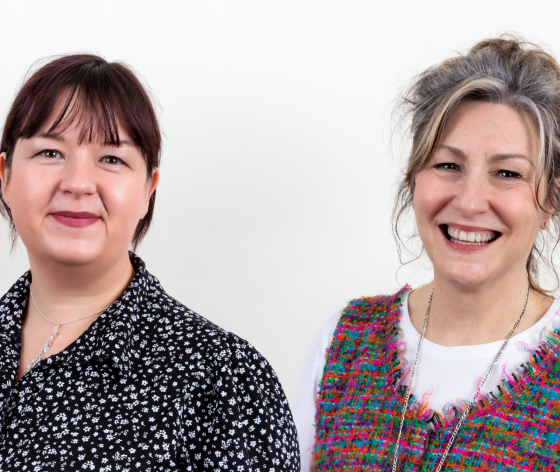What is Ovarian Cancer Awareness Month?
Every March is Ovarian Cancer Awareness Month. It's our chance to put ovarian cancer in the spotlight.
In the UK, over 7,000 women are diagnosed with ovarian cancer every year. Two thirds of women are diagnosed with ovarian cancer too late when the cancer is harder to treat. And every day, 11 women die.
We won’t accept that – and we know that you won’t too. Not when survival rates in other countries are so much higher. And not when we can do something about it right now.
We can’t afford to stand still. We’re pressing Fast Forward on early diagnosis and we need you with us.


